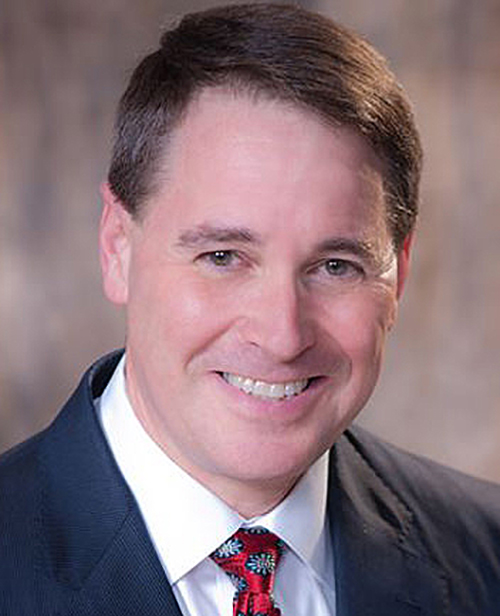Often when a hospital health system buys an independent physicians’ practice, the new owner would like its clinical laboratory to serve that medical group
After a hospital or health system buys a physicians’ practice, it is common that the new owner has its in-house medical laboratory provide lab testing to the newly-acquired medical group. Such a purchase is generally good for hospital labs, but not so good for any independent lab that, prior to the sale, had been serving the newly-sold medical practice.
Therefore, when hospitals purchase thousands of physician practices, the impact on the nation’s independent clinical laboratories has the potential to be significant. That’s one conclusion contained in a newly updated report based on co-research by Physicians Advocacy Institute (PAI) and Avalere Health, a healthcare and life sciences consulting firm headquartered in Washington, D.C.
Clinical Laboratory Test Orders Drop as Physicians Join Hospital Staff
According to a PAI news release, hospitals acquired 5,000 independent physician practices between July 2015 and July 2016. Building on a previous Avalere-PAI study, the data suggest that over four years (from mid-2012 to mid-2016) the percentage of hospital-employed physicians increased by more than 63%. In other words, 42% of doctors were employed by hospitals in July 2016, as compared to 25% of doctors in July 2012, a proportion that nearly doubled in just four years!
As more physicians move from owning their private practice to becoming employees of the new owner, independent labs serving those medical practices are at risk of losing the lab test referrals from the practice.
Of course, this can be a boon for hospital-based or healthcare system labs that see an uptick in lab test referrals, as more physician practices or outreach customers join the hospital team. However, surveys show, for hospitals, acquiring and owning more doctors’ practices can be problematic.

“As payers and hospitals continue [to] drive consolidation across the healthcare system, it is becoming more and more difficult for a physician to maintain an independent practice,” stated Robert Seligson (above), PAI President and CEO of the North Carolina Medical Society, in the PAI news release. “Payment policies mandated by insurers and [the] government heavily favor large health systems, creating a competitive advantage that stacks the deck against independent physicians, who are already struggling to survive under expensive, time-consuming administrative and regulatory burdens.” (Photo copyright: Physicians Advocacy Institute.)
The newest data, released by PAI in 2018, suggest that from July 2015 to July 2016 hospitals were actively buying physician practices:
- 5,000 physician practices were acquired by hospitals;
- 8% to 47% growth in hospital-owned practices in every region of the U.S.; and,
- More than 33% of Midwest physician practices were hospital-owned in 2016.
The data also indicated that more doctors had chosen to become employed by healthcare systems, giving up their independent status. From mid-2015 to mid-2016:
- 14,000 more physicians became hospital employees;
- 11% increase in employed physicians; and
- 5% to 22% growth of hospital-employed doctors in every U.S. region, with more than 50% in the Midwest, 37% in the south, and 33% in Alaska and Hawaii.
This has had the expected impact on hospital finances. The 2017 American Medical Association (AMA) Physician Practice Benchmark Survey suggests hospital purchases of medical groups appear to be slowing, as hospitals’ cost to employ physicians increases, Modern Healthcare noted.
“Physician compensation is one of the fastest growing expenses in health systems. It has become as high as 10% of total expenses for some systems. The burden is not sustainable,” Joel French, Chief Executive Officer, SCI Solutions, told Modern Healthcare.
Medicare Pays More to Hospitals for the Same Services
The PAI-Avalere report also noted that Medicare pays more for certain services when performed in hospital outpatient departments instead of doctors’ offices.
A blog post in the American Journal of Managed Care (AJMC) detailed a few of the differences:
- $5,148 for hospital cardiac imaging compared to $2,862 in a doctor’s office;
- $1,784 for a colonoscopy in-hospital versus $1,322 in a physician’s office; and,
- $525 for in-hospital evaluation and management services compared to $406 in the doctor’s office.
“The shift toward more physicians employed by hospitals could mean higher costs for the entire healthcare system,” Kelly Kenney, PAI Executive Vice President, stated in the PAI news release.
Practice Ownership Effects Quality of Care
While the PAI-Avalere analysis explored physician employment’s impact on payment for some services, another study explored its effects on quality of care.
Researchers analyzed data from three national surveys of physician practices. Their report, published in the American Journal of Managed Care (AJMC), found that in hospital-owned physician practices, there was more use of recommended care management processes (CMPs), such as, disease registries and nurse coordinators.
“The current findings suggest that hospital acquisition of practices may have beneficial effects for patients with chronic illnesses,” the researchers wrote in AJMC.
As medical groups change owners, independent clinical laboratories must work hard to retain the testing business—especially when the new owner is a hospital or healthcare system with its own in-hospital medical laboratories.
—Donna Marie Pocius
Related Information:
Five Thousand Independent Physician Practices Acquired by Hospitals in 12 Months
Hospital Ownership of Physician Practices Increases Nearly 90% in Three Years
Hospital Acquisition of Independent Physician Practices Continues to Increase
American Medical Association Physician Practice Benchmark Survey
For the First Time Ever, Less Than Half of Physicians are Independent
Trends in Hospital Ownership of Physician Practices and the Effect on Processes to Improve Quality



